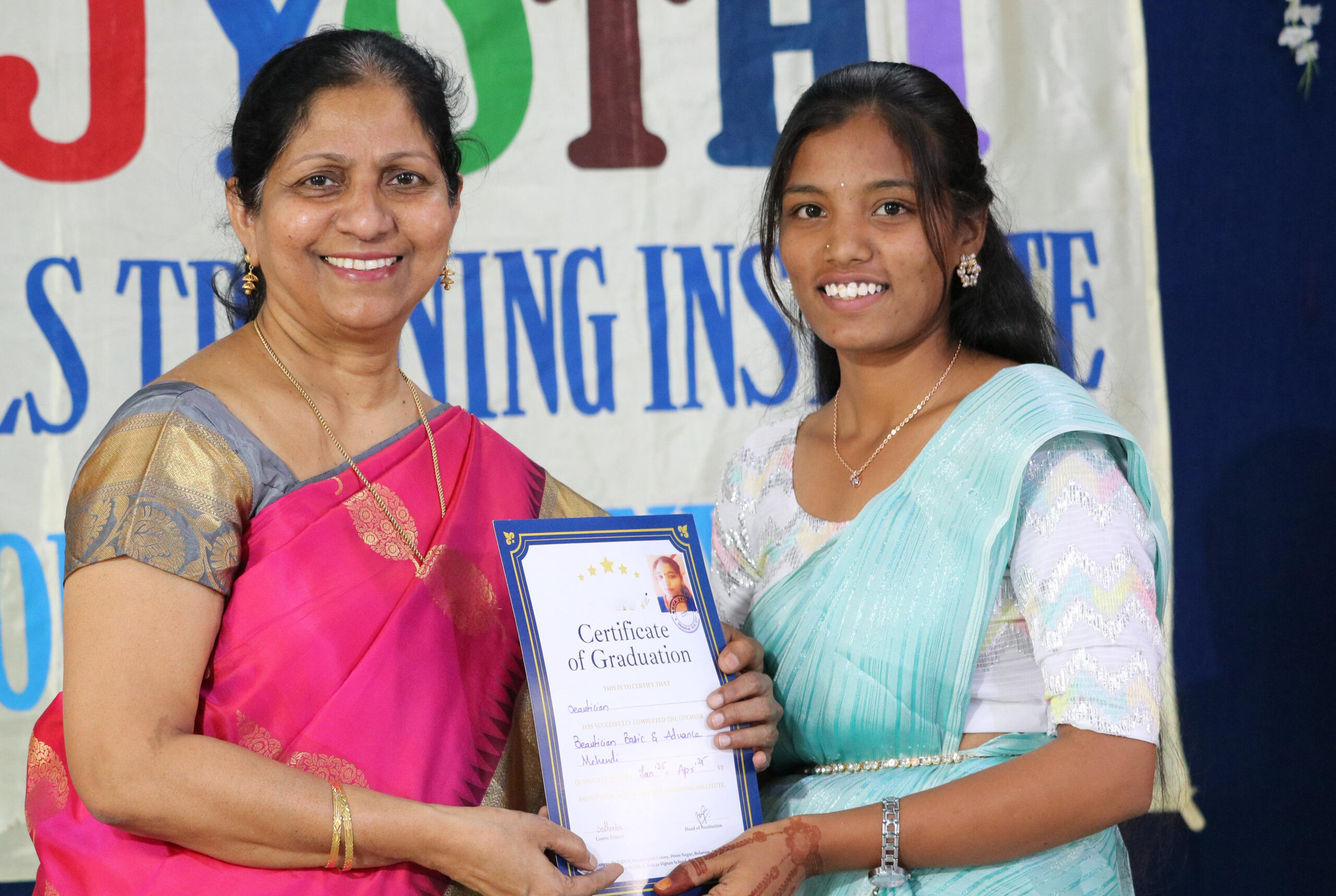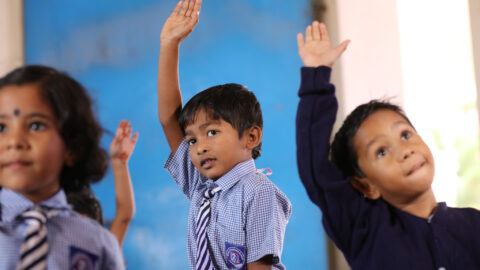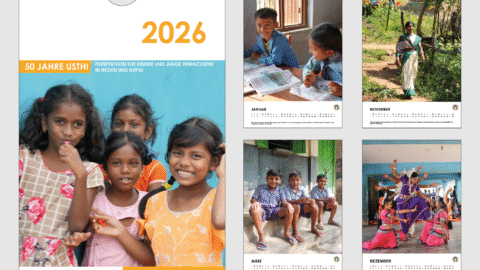Despite economic growth, securing a livelihood remains a major challenge for many families in India. The majority of Indians work in the informal labor market, usually without social security or employment contracts and often under precarious working conditions. Access to the labor market and to fairly paid jobs is marked by glaring inequalities: women in particular are employed in poorly paid temporary work, for example in agriculture or as domestic workers. For young people from families affected by poverty, finding a job that actually covers basic living costs is almost impossible without a solid education or prior work experience.
Opening up new perspectives with employable skills training
Together with a local partner organization in Hyderabad, Usthi opened an employable skills training centre in 2008. The hands-on training courses give graduates the chance to secure fairly paid jobs and enable them to build a financially independent life or contribute to their family’s income. Every year, more than 1,000 young women and men embark on a new chapter of their lives with newly acquired skills and a recognized skill training certificate.

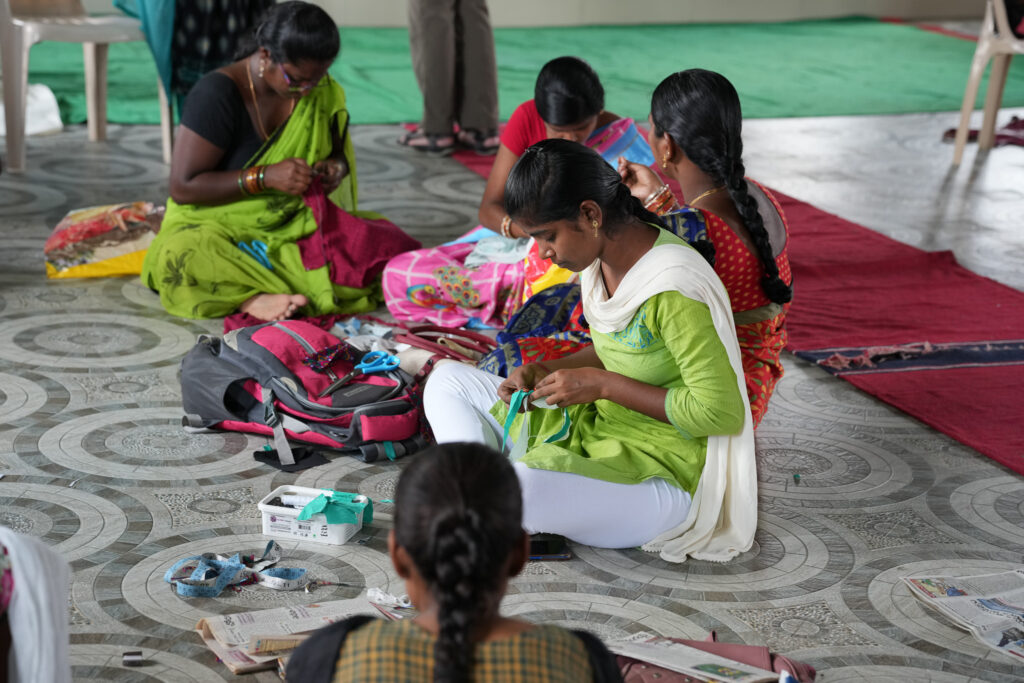
Harika*, Tailor
For Harika, the qualification as a seamstress opens up the possibility of building an independent future, free from the debts and financial difficulties that shaped her childhood. When she was a girl, her father’s alcoholism consumed most of the family’s hard-earned income. The little money left was hardly enough to survive, and Harika was forced to leave school after the 10th grade. As a teenager, she took on casual jobs at the local market but earned barely anything for her work.
A few years later, Harika discovered an advert for the employable skills training centre in the local newspaper and enrolled in the tailoring course. Even during the six-month training where she finished two courses, she found a job in a nearby textile processing centre. Today, Harika earns four times as much as she did before the skills training. Her income enables her to pay off her father’s debts and to build an independent future for herself.
Siri*, Lab Technician
Thanks to the employable skills training, Siri was able to find hope again. Siri lost her father in a road accident. At the time, still a young girl, she could hardly cope with the shock and left school. Her mother tried to provide for the family as a day labourer, but soon Siri also had to contribute to the family income through temporary jobs. Looking back, she says she was overcome by disappointment and could see no hope for the future.
Several years later, at an event of the anti-human-trafficking awareness campaign, Siri met a staff member of our partner organisation who encouraged her to take up skills training. Siri was persuaded to begin the course as a lab technician. During the six months of training, she lived on campus. Staff supported her closely and Siri also received psychological counselling. With excellent exam results and through encouraging internship experiences, she gradually gained motivation and self-confidence. When Siri recently completed her training, she told the team: “I now feel I can dream again.” Siri is looking forward to standing on her own feet in the future and being able to support her mother.

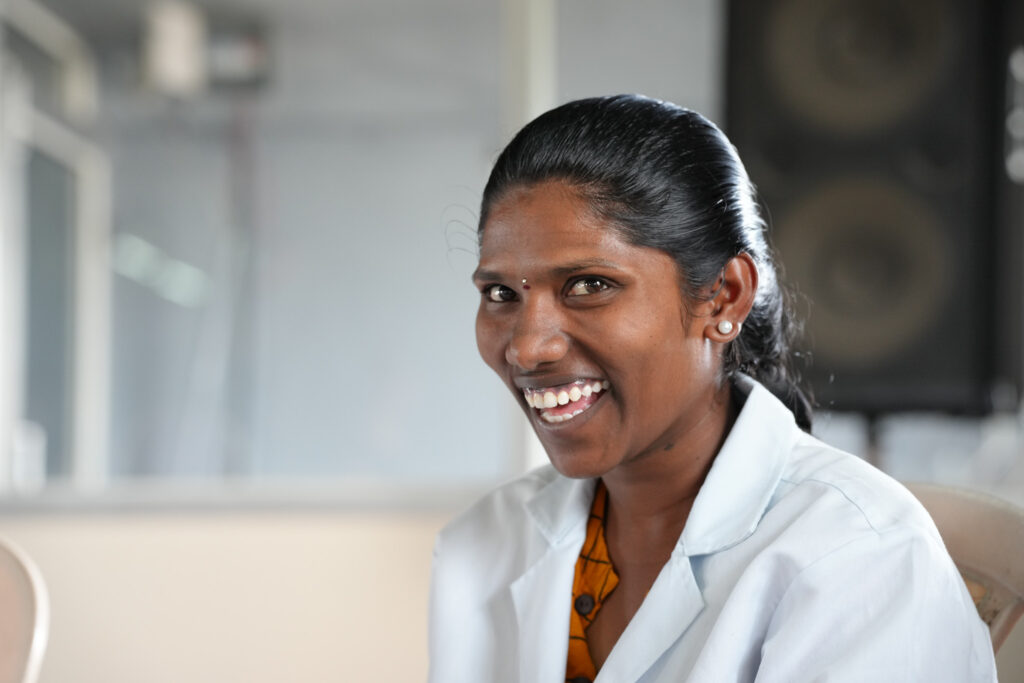
Empowered for the Future: Skills, Self-Confidence and Hope
Already during the training, or shortly afterwards, around 90% of participants find a good follow-up opportunity. Thanks to job placement events on the campus, recent graduates are able to secure employment. Some also decide to set up their own small business. Beyond the noticeable improvement in household income, completing skills training has a profound effect on the young people’s self-confidence. The skills and connections gained through training empower them to face the future with courage.
Employable Skills training opens doors – not only for the young women themselves (around 90% of graduates are women), but also for the next generation. Many mothers report that their increased income enables them to pay school fees for their children. Thanks to skills training, families are able to provide their children with a better education than they themselves received. An important step towards breaking the cycle of poverty.
*To protect the privacy of the young women, names have been changed and stock images from the employable skills training centre have been used.
